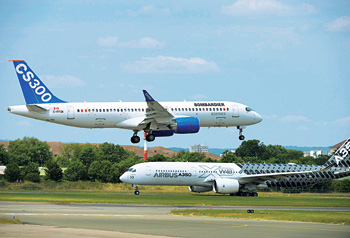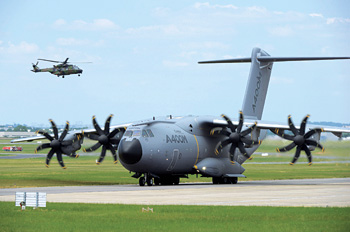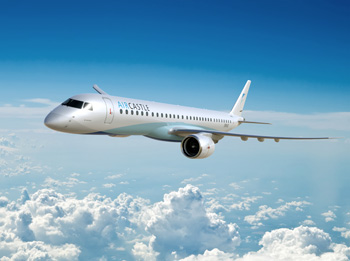INDIAN ARMED FORCES CHIEFS ON OUR RELENTLESS AND FOCUSED PUBLISHING EFFORTS

The insightful articles, inspiring narrations and analytical perspectives presented by the Editorial Team, establish an alluring connect with the reader. My compliments and best wishes to SP Guide Publications.

"Over the past 60 years, the growth of SP Guide Publications has mirrored the rising stature of Indian Navy. Its well-researched and informative magazines on Defence and Aerospace sector have served to shape an educated opinion of our military personnel, policy makers and the public alike. I wish SP's Publication team continued success, fair winds and following seas in all future endeavour!"

Since, its inception in 1964, SP Guide Publications has consistently demonstrated commitment to high-quality journalism in the aerospace and defence sectors, earning a well-deserved reputation as Asia's largest media house in this domain. I wish SP Guide Publications continued success in its pursuit of excellence.
Paris Razzmatazz
The 51st edition of the iconic Paris Air Show was not just about mega deals but also of technology trends in both commercial and military aviation. Aerospace and defence companies vied with each other to showcase the present and the future of aviation.



There is nothing new about the battle between the two aerospace giants – Airbus and Boeing – which happens at most air shows, particularly at the five-day iconic biannual event – Paris International Air Show that concluded on June 20, 2015. It is also a known fact that invariably Airbus, taking home-turf advantage, beats Boeing in terms of orders, grabbing headlines and other marketing strategies. While the duopoly battle it out, hundreds of other players have their own ways of getting attention of the business visitors from across the world who throng the show for the first three days. The 51st Paris International Air Show, held at Le Bourget, had record-breaking exhibitors – 2,303 (a four per cent increase on 2013) from 48 countries (up from 44). The number of visitors was up by 11.4 per cent at 3,51,000 of which trade visitors accounted for 1,51,000, a jump of 8.6 per cent over 2013. There were 26 national pavilions and 130 aircraft were displayed, including the Falcon 8X, Dassault Aviation’s latest business jet that went on show in public for the first time, and likewise the Airbus A350 and A400M. Dassault Aviation’s Rafale, Bombardier’s CS300, the JF-17 fighter from Pakistan, the Boeing 787 and the Airbus Group’s E-Fan all drew huge crowds.
The show attracted 296 official foreign delegations from 91 countries and 147 defence delegations from 87 countries. The President of Gabon was one of the dignitaries visiting the show, so was India’s Civil Aviation Minister Ashok Gajapathi Raju.
Mega deals clinched
According to the organisers, business deals amounting $130 billion were announced including: 934 commercial airliners (Airbus 421 aircraft: $57 billion; Boeing 331 aircraft: $50.2 billion; 835 CFMI engines: $14 billion; 52 Airbus helicopters: 550 million euros).
“This 51st Paris Le Bourget Air Show has been a remarkable success with record attendance by the public, a record number of exhibitors and more than 130 billion dollars’ worth of orders announced. The impressive demonstrations put on by an air force pilot in Dassault Aviation’s Rafale, the presentation of Airbus’ A350, A380, A400M, Dassault Aviation’s Falcon 8X and other aircraft delighted the French President and the public from the first to the last day,” declared Emeric d’Arcimoles, Chief Commissioner of the Air Show.
Airbus on a roll
Airbus won $57 billion worth of business for a total of 421 aircraft. The deals comprise firm orders for 124 aircraft worth $16.3 billion and commitments for 297 aircraft worth $40.7 billion. In the widebody market, Airbus kicked-off the show with the announcement of the first operator for the new A330 Regional, with Saudi Arabian Airlines taking 20 on lease from IAFC, a leading lessor in the Middle East. The A330 Regional will enable airlines to serve fastgrowing domestic and regional routes at least cost and maximum efficiency.
The A350 XWB continues to attract new business with commitments for 31 A350-900s, reinforcing its leading position as the world’s most modern, advanced widebody aircraft. Airbus’ most modern, comfortable, efficient and reliable range of wide-body aircraft won 55 orders and commitments worth $15.6 billion, comprising 31 A350-900s, 20 A330 Regional and four A330-300s.
In the single-aisle sector, the market leading A320 Family garnered an impressive 366 endorsements (comprising 103 firm orders and 263 commitments) worth $41.4 billion. Of these, 323 are NEO’s, taking total orders and commitments for the A320neo Family beyond 4,000 since launch in December 2010.
New freighter conversion
Boosting the longevity of the best-selling A320 Family, Airbus announced a new freighter conversion programme in partnership with EFW and ST Aerospace. This broadens Airbus’ portfolio of innovative solutions, meeting the requirements of customers in all market segments.
John Leahy, Airbus’ Chief Operating Officer, Customers, said, “Our latest forecast for 32,600 planes in the next 20 years is being proved correct. The orders and commitments at this year’s Paris Air Show demonstrate three things; Asia is powering the growth, we are leading in single-aisle and widebody and our A321neo is the aircraft of choice in the middle of the market.” He also pinned better prospects for the A380, stating that only larger aircraft will be able to meet the exploding traffic requirements.
- Over $130 billion worth of o rders announced
- Defence technologies loo k at lowering costs
- 52nd Paris Air Show to be held from June 19-25, 2017
Boeing maintains strong-hold in widebody
Boeing’s orders were worth $50 billion and the US aerospace behemoth was busy making presentations to journalists and visitors on how its programmes were on course and that they had a competitive edge over its arch rival when it came to fuel efficiency and return on investment. In the wideody segment, Boeing got more orders than Airbus and this point was driven home on the premise that wideody jets fetch higher margins than narrow-body jets. The Senior Vice President and General Manager, Airplane Development, Scott Fancher said the 737 Max was 8 per cent more fuel efficient than A320neo and could put 12 more seats in the heart of the market. The performance and schedule of the programme was on track. The first flight would be in next year and first delivery in 2017.
The 787-10, he said, would have 30 per cent better fuel per seat than A330 and 10 per cent better fuel per seat than A350. The rollout would be in 2017 and first delivery in 2018. The 777X, he said, would have 12 per cent more fuel efficiency than A350-1000. The first flight would be in 2019 and delivery in 2020.
Embraer has a good run
At the show, Embraer had wins from Aircastle Holding Corporation; SkyWest, Colorful Guizhou and United Airlines, making the Brazilian regional jet manufacturer the most dominating player in the segment.
Aircastle had firm orders fo 25 E-Jet E2s (15 E190-E2s and 10 E195-E2s) with an additional 25 purchase rights. The transaction will be included in Embraer’s 2015 second-quarter backlog. The first E-Jet E2 (an E190-E2) is planned to be delivered in the first semester of 2018.
SkyWest Inc. the largest regional airline group in the world, announced a firm order for 8 more E175s. The aircraft will be flown by SkyWest Airlines under a capacity purchase agreement (CPA) with Alaska Airlines. The transaction is valued at $355 million and deliveries are due in 2016. The E175s are configured with 12 first class and 64 economy class seats.
For Embraer, China has been more than welcoming. A new, locally-owned airline in China’s southwest Guizhou Province is Embraer’s latest E-Jet customer in that country. Colorful Guizhou Airlines has concluded an agreement for 7 firm and 10 option current-generation E190s in a transaction valued at $834 million if all options are exercised. The first delivery will coincide with the airline’s start of operations later this year. Its fleet plan calls for up to 30 aircraft by 2020.
The acquisition follows the expected rapid growth of domestic air travel in China and the airline’s objective of improving regional aviation in western China. According to Embraer Commercial Aviation President Paulo Cesar Silva, “Over the years, the E190s have proven to be effective tools in building regional connectivity and promoting economic development in the western provinces.”
Also at the show, United Airlines announced an agreement with Embraer for 10 firm orders for the E175. Embraer expects that United or one of its partners will convert options for 18 aircraft to firm orders in the near term. United Express, the regional partner of United Airlines, would then have a fleet of 153 E175s that would give the regional entity the distinction of having all of its 76-seat equipment operated exclusively by E175s.
The E195-E2 is scheduled to enter service in 2019 and the E175-E2 in 2020. The E-Jets E2 programme reinforces Embraer’s commitment to continuously invest in the company’s line of commercial jets and to maintain its leadership position in the 70- to 130-seat aircraft segment. The E2s have state-of-the-art Pratt & Whitney PurePowerTM Geared Turbofan high bypass ratio engines (PW1700G on the E175-E2, PW1900G on the E190- E2 and E195-E2). Combined with new aerodynamically advanced wings, full fly-by-wire flight controls, and improvements to other systems, the E2s will deliver significant reductions in fuel burn, maintenance costs, emissions and external noise.
ATR props up sales
ATR, the regional aircraft manufacturer, had a good show, having bagged 46 firm orders and 35 options, for a total value of $1.98 billion. The orders signal that ATRs were the year’s bestselling regional aircraft with fewer than 90 seats, despite a difficult economic and financial context and a highly competitive environment. Sales since the beginning of the year have enabled ATR to break through the symbolic barrier of 1,500 firm orders and to consolidate an order book of nearly 300 aircraft, the equivalent of over three years of production.
Pratt & Whitney Improving Engine Performance
Pratt & Whitney, a United Technologies Corp. company, is undertaking 14 different big data analytics projects in 2015 to improve engine performance and service offerings for customers. “In only one year, we have expanded our capabilities in big data exponentially,” said Matthew Bromberg, President, Pratt & Whitney Aftermarket. “Improving the performance of our engines and maintenance predictability are two critical components of optimising the value we give our customers.”
Pratt & Whitney is building a predictive model to monitor engine event performance, leading to an increasingly proactive approach in maintenance planning and requirements. This intelligence can help operators optimise fleet operations and reduce maintenance costs. The project, which initially focused on field operational data and system health information data from PW4000 100-inch engines, has been expanded to encompass similar data for all PW4000 engine models.
Rolls-Royce partnerships grow
Rolls-Royce welcomed Industria de Turbo Propulsores, S.A. (ITP) of Spain, Japan’s Kawasaki Heavy Industries Ltd (KHI) and Mitsubishi Heavy Industries Aero Engines Ltd (MHIAEL) as risk and revenue sharing partners on the Trent 7000, the exclusive engine for the Airbus A330neo aircraft. KHI will supply the intermediate pressure compressor (IPC) module from its Seishin facility. Its risk and revenue sharing relationship with Rolls-Royce dates back to 1988 and the RB211 engine, and most recently has seen KHI supply the IPC module for both the Trent 1000 and Trent XWB engines. MHIAEL will supply components for combustion modules and all stage LPT blades from its facility in Nagoya.
Eric Schulz, Rolls-Royce, President, Civil Large Engines, said, “Having these three valued, world-class partners confirm their support for the Trent 7000 is excellent news. All three have played a key role in the development and success of the Trent engine family.”
CFM totals 835 engines
CFM International’s industry-leading LEAP and CFM56 product lines remain the engines of choice for single-aisle aircraft, with the company signing orders, commitments, and long-term service agreements for a total of 835 engines at the show. “What a great show” said Jean-Paul Ebanga, President and CEO of CFM International. “In just three days, we more than doubled our total orders for this year, with the CFM56 and LEAP product lines doing very well. More than 80 per cent of the CFM orders and commitments have come from lessors and Asian customers which are pulling the aerospace market forward.”
The highlights of the week include wins from AerCap Holdings: 200 LEAP-1B engines; GE Capital Aviation Services (GECAS): 120 LEAP-1A engines; SMBC Aviation Capital: 60 LEAP- 1A and 20 LEAP-1B engines; Garuda Indonesia: reconfirmed commitment for 160 LEAP-1B engines; Korean Air: 60 CFM LEAP-1B engines; Minsheng Financial Leasing: 20 CFM56-7B and 40 LEAP-1B engines; Avolon: 40 LEAP-1A engines; Ruili Airlines: 60 CFM LEAP-1B engines; Qatar Airways: 16 CFM56-5B engines; Peach Aviation: six CFM56-5B engines; Sriwijaya Air: four CFM56-5B engines, etc.
Gulfstream record flight
Gulfstream Aerospace Corp. announced that the Gulfstream G280 recently added to its growing list of city-pair records, this time linking Paris with Abu Dhabi. The super mid-sized aircraft travelled from Paris’s Le Bourget Airport to Abu Dhabi International Airport in United Arab Emirates. The distance of 2,908 nautical miles (5,386 kilometres) was covered in 6 hours and 16 minutes at an average speed of Mach 0.82. Pending approval by the US National Aeronautic Association, the G280’s 51st citypair mark will be sent to the Fédération Aéronautique Internationale in Switzerland for consideration as a world record.
“It’s a testament to the G280’s many attributes that we’ve delivered more than 60 of these aircraft to operators in 11 countries,” said Scott Neal, Senior Vice President, Worldwide Sales and Marketing, Gulfstream.
Cessna presents Grand Caravan EX
Cessna Aircraft Company, a subsidiary of Textron Aviation Inc., a Textron Inc. company, debuted the newly-configured Cessna Grand Caravan EX demonstrator. The aircraft features a variety of special mission applications, such as a surveillance console and a medical stretcher, as well as a variety of cabin and seating configurations, including newly designed light-weight production seats in a half club configuration and a stowable utility seat.
The Grand Caravan EX is particularly well suited for a wide array of operations due to its spacious cabin, high useful load of more than 3,500 lbs (1,588 kg), large cargo door and the ability to operate from short, unimproved surfaces.
Embraer facility in Florida
Embraer announced the completion of its acquisition of a new subsidiary, Embraer Aero Seating Technologies. Embraer further announced a new manufacturing facility for this business to be based in Titusville, Florida in Brevard County. The new Florida facility will produce seating solutions for various Embraer products, with the design and some manufacturing functions remaining in place at the company’s headquarters in California. The seats feature high quality, ergonomic comfort and lightweight construction, with innovative designs and features for the ultimate cabin experience.
Military
In the shadow of commercial deals, the military segment works its way through with quiet presentations and announcements. While Dassault Aviation continued to dominate the skies with the Rafale fighter jet, the NH90 Caiman combat helicopter impressed with their flying displays. The E-Fan electric demonstrator was the cynosure of all eyes. The A400M military transporter which had a recent setback due to an accide nt was at the show with gusto. Airbus CEO Fabrice Bregier said: “There is no competitor to the A400M which is by far the most modern military transport aircraft. So there will be a big export market, I’m convinced of it.”
Rafale roars
Dassault Aviation is in an upbeat mood having won orders from Egypt, Qatar and India (though the last order is for 36 Rafale fighter jets and not 126 as envisioned when the MMRCA deal was announced). These wins have given a new lease of life to Dassault Aviation and at the show the Rafale roared in the skies to signify that.
Eric Trappier, CEO of Dassault Aviation said: “The Rafale is better than the others because it is doing everything. It is good in doing each mission, but it is doing every type of mission—air-to-air, air-to-ground, air-to-sea, recce mission, even nuclear mission for France and this capability to replace all types of aircraft, making one aircraft, all what you can do from an air force base or from the aircraft carrier which I think leaves Rafale to be the only one of its type omnimodal capabilities for addressing all types of missions.”
Lockheed Martin launches hybrid airships
Lockheed Martin announced the launch of the 20-tonne Hybrid airship, as it uses both aerostatic and aerodynamic technologies to lift. The airship is designed to land on all kinds of surfaces, including water. It will operate at a tenth of the fuel used by a helicopter per tonne. It is up for grabs either by commercial or military purchasers and deliveries would start in 2018.
Textron’s Scorpion Jet debut
Textron’s Scorpion Jet made its debut here and the fighter jet is touted as an ‘affordably’ priced jet which can provide ground support function and get to locations at faster turnaround times. There has been interest in Scorpion from some countries in Latin America, the Pacific Rim and the Middle East, besides the Pentagon.
Textron also showcased ‘Fury’, its small, lightweight glide weapon designed to be carried on platforms ranging from small unmanned aerial systems to light attack aircraft. Textron claims Fury utilizes semi-active laser (SAL) and Global Positioning System (GPS) guidance and has proved accurate within one metre of a designated target.
The Paris Air Show, irrespective of the size of the deals, continues to attract the aviation industry as it is here that new trends are not only revealed, but also the industry gains a lot of traction through global interaction.





